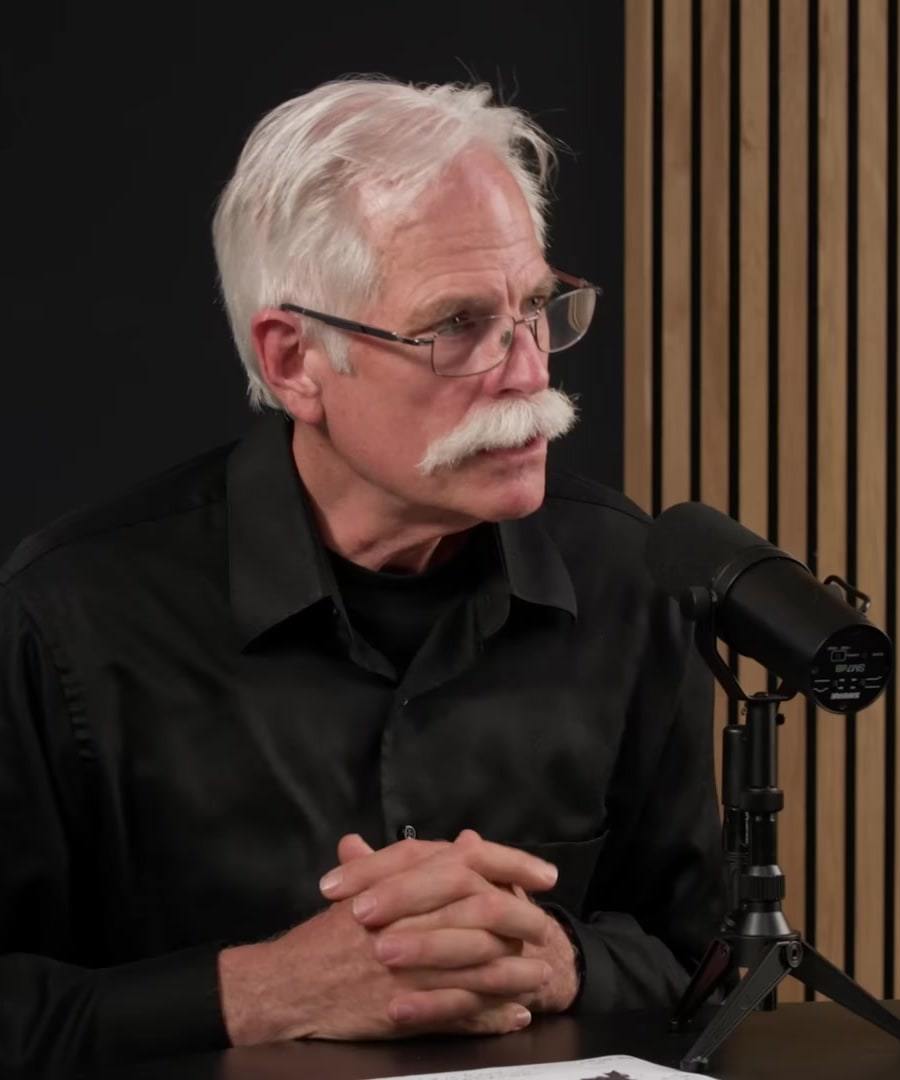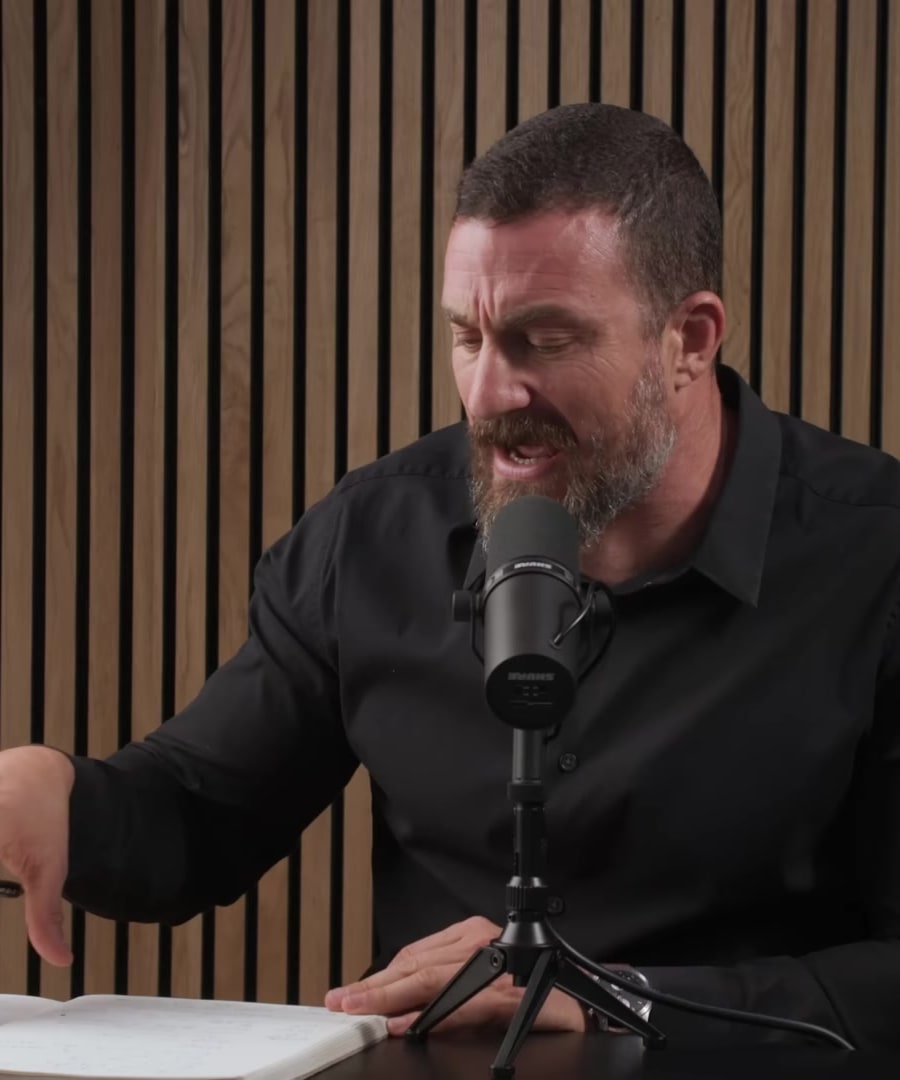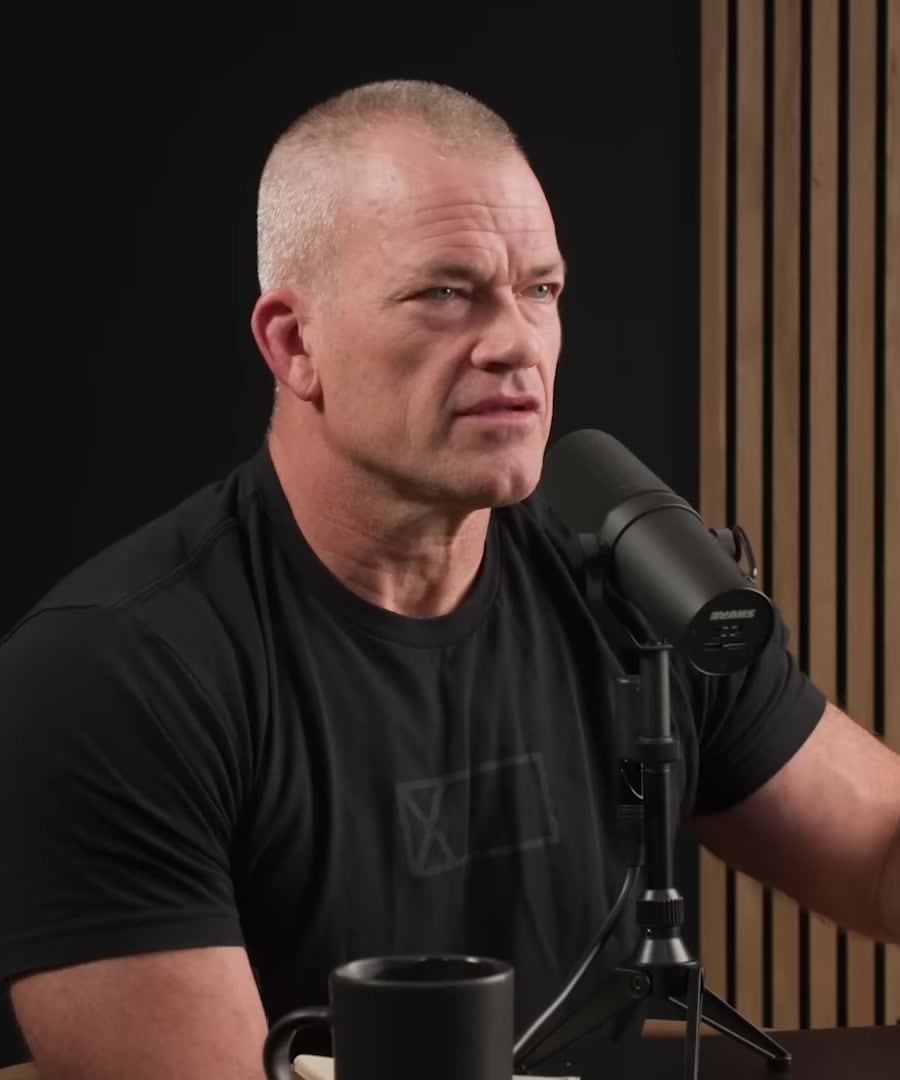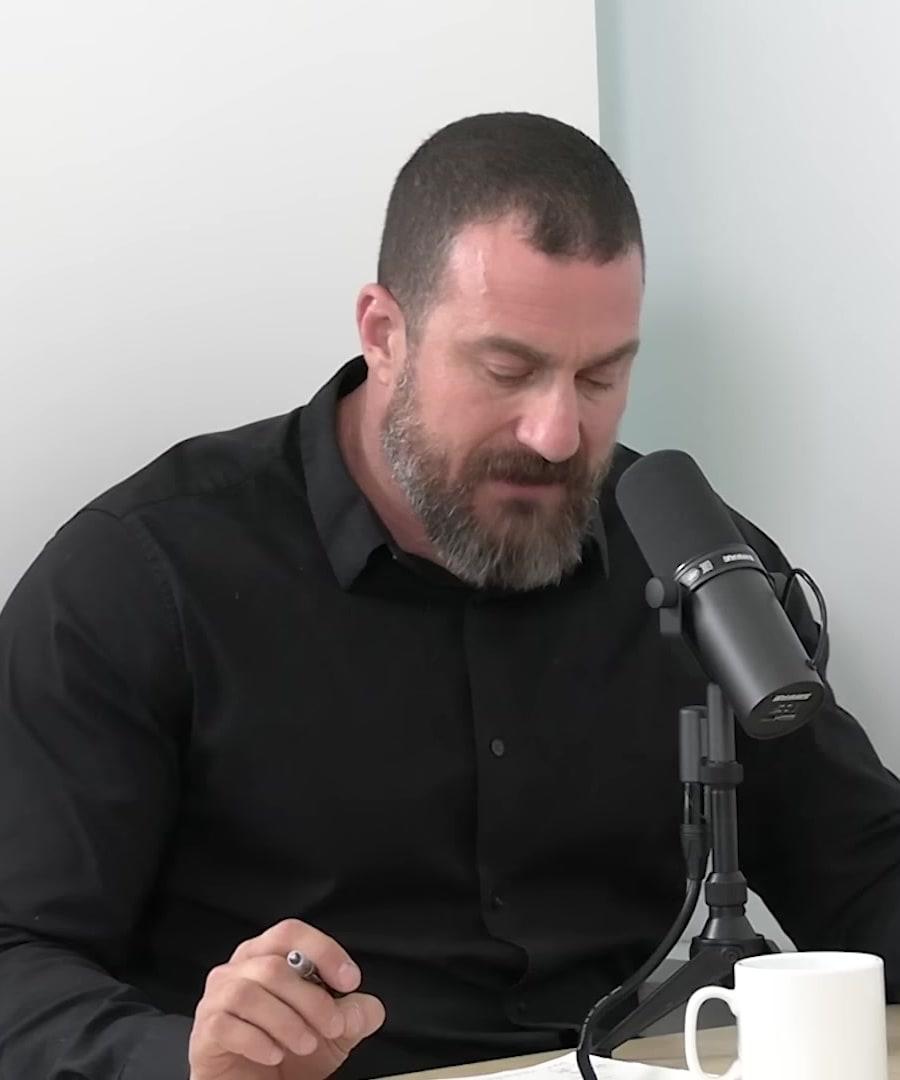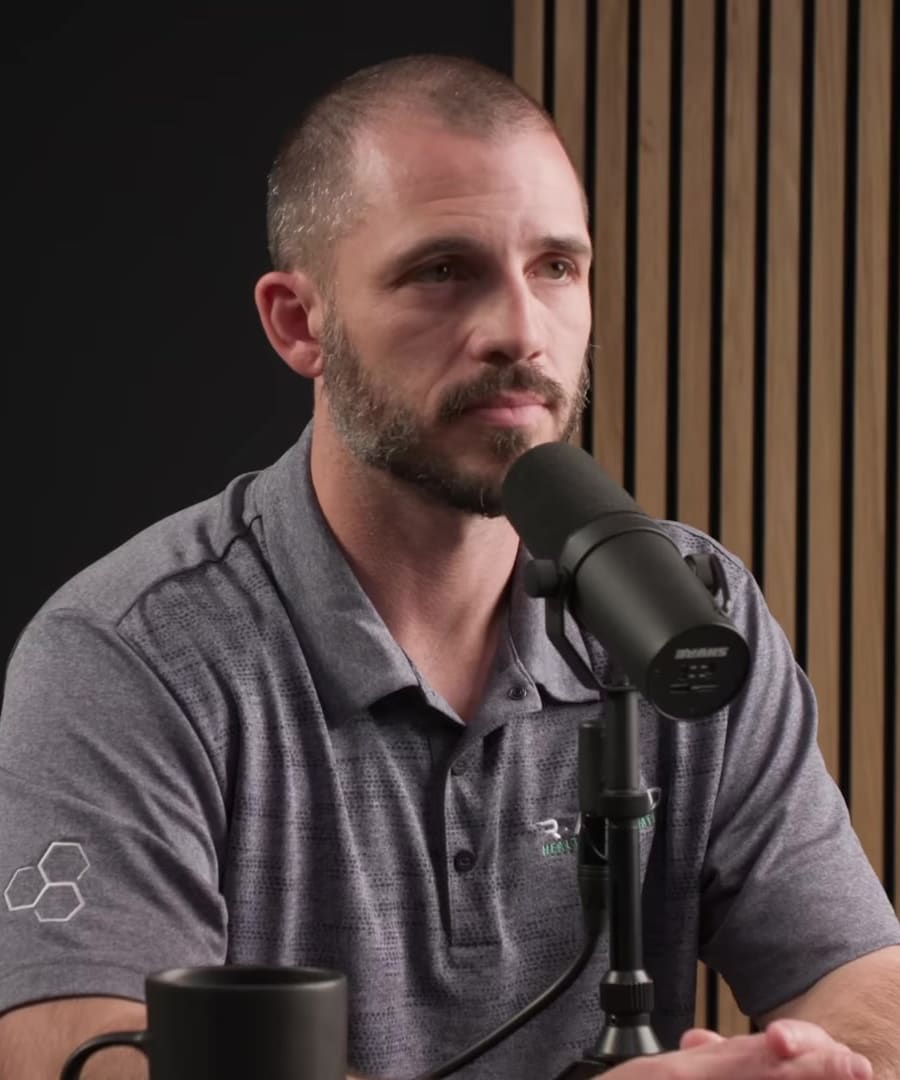How to help with long covid
It appears that there are no specific clips related to helping with long Covid from the . Since the content is based on the data retrieved from the Huberman Lab, I don't have any information on this topic at the moment.
If you have any other questions or need information on a different topic, please feel free to ask!
RELATED QUESTIONSHow to build resilience post-illness?
Sources:
Building resilience post-illness involves enhancing physical and mental strength to support overall recovery and well-being. Here are some insights and strategies discussed by experts like :
-
Core Stability for Physical Health: Developing core strength is essential as it stabilizes your body and helps distribute force efficiently. shared that a strong core can improve bodily control and performance by arresting micro-movements which can be crucial for overall physical resilience 1.
-
Platelet-Rich Plasma (PRP): Though not specific to illness recovery, PRP injections have been discussed as methods to enhance tissue resilience and repair. While PRP shows promise for muscle tears, its efficacy for improving disc health and overall resilience remains uncertain 1.
To build resilience post-illness, consider focusing on physical rehabilitation through core strengthening exercises and exploring treatments like PRP under professional guidance. Prioritize a balanced recovery plan that includes both physical and mental health strategies.
RELATED QUESTIONS-
Who are experts on long Covid?
Sources:
Here are some experts on long COVID who have appeared on the and other related podcasts:
- Peter Attia: A physician and longevity expert known for his innovative strategies in longevity medicine, including integrating nutrition, exercise, sleep, mental health, and pharmacology 1.
- Ido Portal: A human movement expert who has developed a comprehensive theory and practice of movement known as “The Ido Portal Method” 2.
- Justin Sonnenburg: A professor of microbiology and immunology at Stanford, focusing on the gut microbiome's influence on mental and physical health—key aspects that may influence long COVID recovery 3.
- Stuart McGill: A spine biomechanics expert known for his research on spine function, injury prevention, and rehabilitation 4.
- Robert Lustig: A professor emeritus at UCSF and a leading neuroendocrinologist renowned for his insights into public health and metabolic health, areas that could be impacted by long COVID 5.
- Rhonda Patrick: A health and wellness expert, and host of the FoundMyFitness podcast, which often covers topics related to health resilience and recovery 6.
- Chris Palmer: A psychiatrist and Harvard professor known for pioneering research on mental health and mitochondrial function, which could be relevant in understanding and treating long COVID 7.
- Matthew MacDougall: The head neurosurgeon at Neuralink, focusing on brain stimulation and repair—potentially relevant for neurological symptoms in long COVID 8.
These experts provide a multi-disciplinary approach to health, offering insights into various aspects of recovering from long COVID.
RELATED QUESTIONSStrategies to regain energy?
Sources:
Here are some strategies to regain energy, as discussed on the :
-
Exercise and Movement:
- Exercise Snacks: Short bursts of exercise (under a minute), such as running up a flight of stairs, can help improve energy and endurance. These can be done several times a day 1.
- Combining Training Types: Incorporating both steady-state exercises (like jogging) and high-intensity interval training (HIIT) can maximize energy and endurance. Each type of exercise offers unique benefits, so a combination is recommended 1.
-
Nutritional Timing:
- Fasting for Mental Clarity: Jocko Willink discusses the benefits of not eating before intense cognitive work or physical activity. He finds that having an empty stomach before performing demanding tasks helps maintain mental clarity and energy levels. Eating afterwards can replenish energy without compromising performance 2.
-
Mental Health and Visual Tools:
- Tools for Mental Health: Andrew Huberman and Emily Balcetis explore the relationship between visual experience and energy, particularly in the context of depression. They suggest that tools which enhance systolic blood pressure (like caffeine or glucose ingestion) and shift cognitive focus can combat energy deficits seen in depression 3.
These strategies offer a holistic approach to regaining energy by integrating physical exercise, nutritional habits, and mental health tools.
RELATED QUESTIONS-
Post exertional malaise
Sources:
Post-exertional malaise (PEM) doesn't seem to be directly addressed in the available data, but there are relevant aspects regarding fatigue, recovery, and their management.
-
Understanding and Managing Fatigue:
- Mental and Physical Exhaustion: Depression can exacerbate feelings of fatigue, making it challenging to move and function. As described by , depression acts like a "bankrupt body budget," where both mental and physical energy are depleted. This concept highlights the importance of managing overall energy budgets to mitigate extreme exhaustion 1.
-
Recovery Timescales:
- Balancing Immediate and Long-term Recovery: discusses the importance of understanding different recovery timescales. Acute post-exercise inflammation, while seemingly harmful, is necessary for long-term adaptation and reduced baseline inflammation. Balancing immediate and delayed gratification is essential to optimize both short-term comfort and long-term gains 2.
-
Supplements and Recovery Enhancement:
- Rhodiola Rosea: This supplement might help in reducing perceived exertion and enhancing recovery. reports that taking Rhodiola Rosea before high-intensity workouts reduces exhaustion and aids in maintaining energy levels throughout the day. Dosages typically range from 100 to 200 mg taken about 10-20 minutes before exercise 3.
-
Nutritional and Sleep Strategies:
- Prioritize Basics: Ensuring proper nutrition, adequate sleep, and exposure to sunlight are foundational strategies before considering supplements. Correcting these basics can help mitigate chronic fatigue and improve overall energy levels.
-
Body Budget Management:
- Emotional Flu: Recognizing the concept of "emotional flu," where poor sleep, inadequate nutrition, or stress leads to somatic discomfort, can help in identifying non-serious, transient reasons for extreme fatigue and addressing them accordingly.
By addressing these areas, individuals experiencing post-exertional malaise can better manage their energy levels and recovery processes. Always consider consulting healthcare professionals for personalized advice.
RELATED QUESTIONS-
How to help with long covid
- RELATED QUESTIONS
How to build resilience post-illness?
- RELATED QUESTIONS
Who are experts on long Covid?
- RELATED QUESTIONS
Strategies to regain energy?
- RELATED QUESTIONS
Post exertional malaise
- RELATED QUESTIONS
